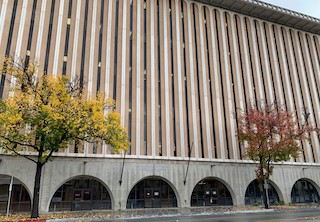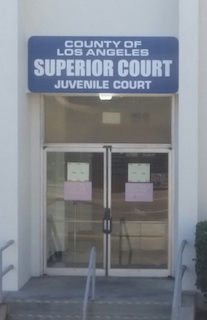Similarly, a prior juvenile adjudication for a serious crime cannot be used under Penal Code § 667(a)(1) as a prior serious crime to make an adult eligible for a five-year sentence enhancement. People v. West (1984) 154 Cal.App.3d 100 (interpreting then § 667(a), which is now § 667(a)(1)). Finally, before Proposition 47 removed Penal Code § 666 (making petty theft with a prior a “wobbler” felony), a juvenile adjudication for petty theft could not be considered a prior under § 666. In re Anthony R. (1984) 154 Cal.App.3d 772.
However, a conviction of a juvenile in a case transferred to adult court (now after a fitness hearing under Proposition 57), may be used as a prior conviction even if the defendant was still a minor at time of sentencing and even if he or she was then committed to the Division of Juvenile Justice (formerly California Youth Authority). People v. Shields (1991) 228 Cal.App.3d 1239, 1240; see Penal Code § 667.5(j); see also People v. Level (2002) 97 Cal.App.4th 1208 (by failing to assert right to juvenile adjudication at time of prior conviction, defendant waived any right in subsequent prosecution to have prior treated as a juvenile adjudication).
 Pasadena Courthouse
Pasadena Courthouse
In addition, and as is most commonly known, a juvenile adjudication of guilt of committing a “strike offense” can be used as a prior for enhancing a sentence under the Three Strikes law (Penal Code §§ 667(e) and 1170.12(c) if:
1. Defendant was at least sixteen at the time of the crime. Penal Code §§ 667(d)(3)(A) and 1170.12(b)(3)(A);
2. Such “strikes” as a prior juvenile adjudication must be listed under Welfare & Institutions Code § 707(b) (juvenile adjudications), Penal Code § 667(d)(1) or (2) (the listings of serious and violent felonies for adults, referencing § 667.5, serious felonies, and 1192.7, violent felonies), or Penal Code § 1170.12(b)(1) or (b)(2) (convictions from other states falling under California’s Three Strikes law);
3. In the juvenile court, the defendant was “found to be a fit and proper subject to be dealt with under the juvenile court law” (Penal Code §§ 667(d)(3)(C), 1170.12(b)(3)(C);
see also People v. Davis (1997) 15 Cal.4th 1096, 1100 (minor need not expressly have been found fit); and
4. Defendant was adjudged a ward of the court under Welfare & Institutions Code § 602 for a crime listed in Welfare & Institutions Code § 707(b) (Penal Code §§ 667(d)(3)(D, 1170.12(b)(3)(D);
see People v. Garcia (1999) 21 Cal.4th 1 (it is not sufficient that the offense merely included the elements of a listed crime).
In addition to eligibility for enhanced sentencing under the Three Strikes law, a juvenile adjudication for a “super strike” (i.e. murder, rape, carjacking, mayhem, etc.) can also prevent resentencing under Prop 36. People v. Arias (2015) 240 Cal.App.4th 161.
Such “use” of a juvenile adjudication to enhance a sentence or prevent resentencing has been challenged on many grounds, including that in a juvenile proceeding, there is no jury. All adjudications are through a court trial with just the judge determining guilty or innocence. This has not been enough to classify such treatment as unconstitutional. People v. Bowden (2002) 102 Cal.App.4th 387, 391; People v. Nguyen (2009) 46 Cal.4th 1007, 1014 (challenge on grounds of no jury trial).
 Juvenile Court Inglewood
Juvenile Court Inglewood Pasadena Courthouse
Pasadena Courthouse